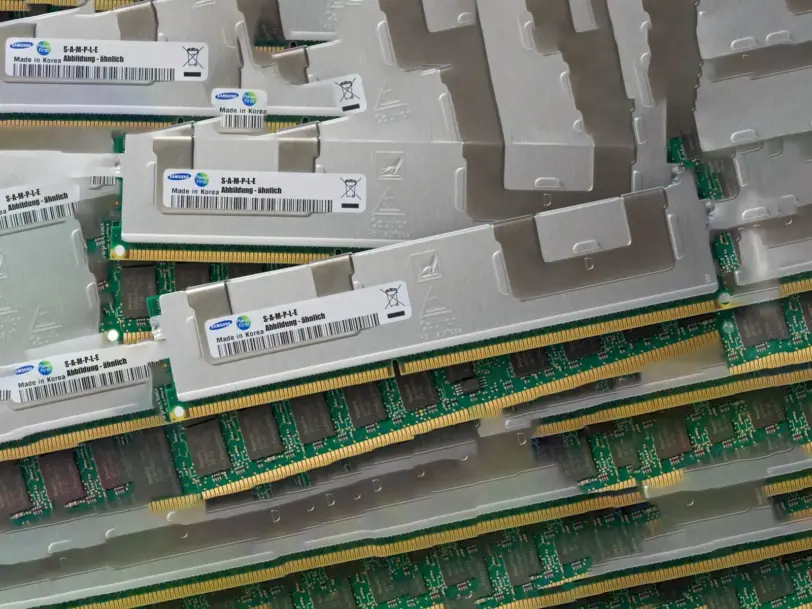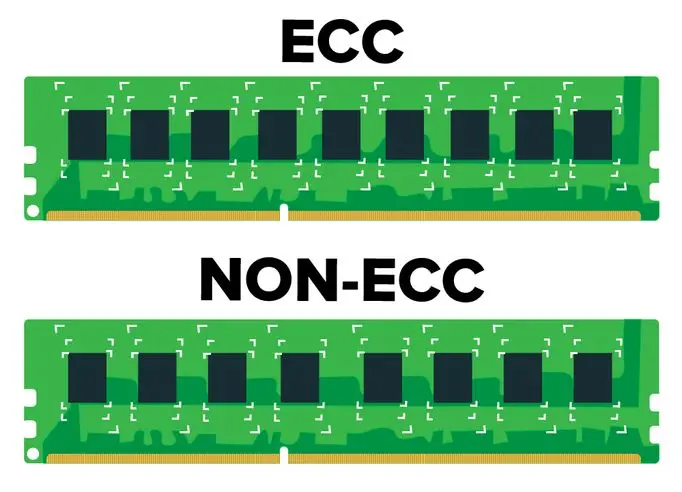What is the difference between ECC and Non ECC RAM

ECC is an abbreviation for Error Correcting Code and is often used to refer to a type of RAM with certain characteristics. These memories are capable of detecting errors and even recovering from certain errors in some cases.
It may be that an individual PC crashes a few times a year due to RAM issues, gives a blue screen, and when it restarts everything continues to work smoothly, but it doesn’t cause any problems. However, there are equipment where this is unacceptable and the time during which the RAMs are inactive must be reduced to a minimum.
Difference between ECC RAM and Non-ECC RAM
In a normal memory, also referred to as non-ECC, you will find eight capsules, each storing one bit. An ECC RAM has nine of them. A capsule is nothing more than a silicon chip coated with plastic. By counting the number of these elements on the memory card, we can physically tell whether a memory is ECC or not.

Since ECC RAMs are designed for use in server environments, they are generally not included in regular equipment. But at least you need a motherboard that supports ECC memory to use it.
ECC memory is more expensive than normal memory. Because ECC memory performs error checking, they are generally known to be slower than non-ECC memory.
ECC memory usage is very important for servers that work with databases and have important information. For a normal computer, there is no harm in using normal memory.